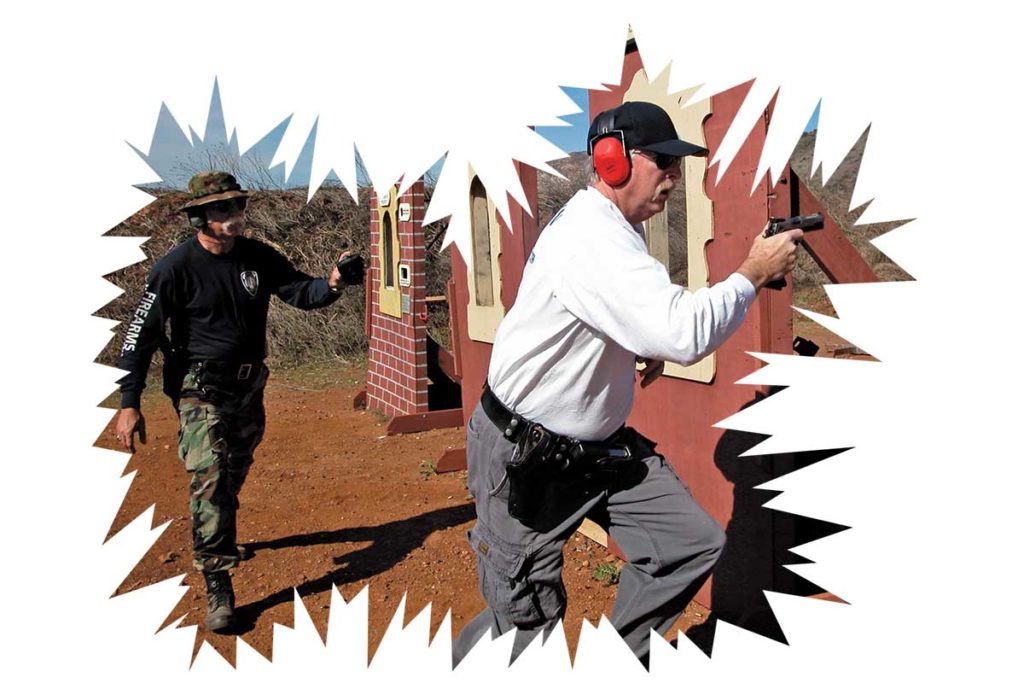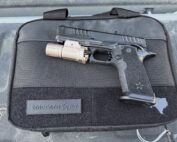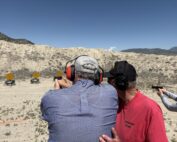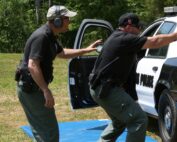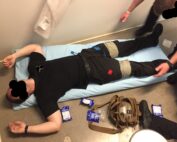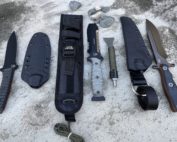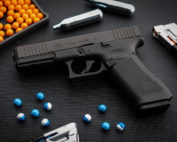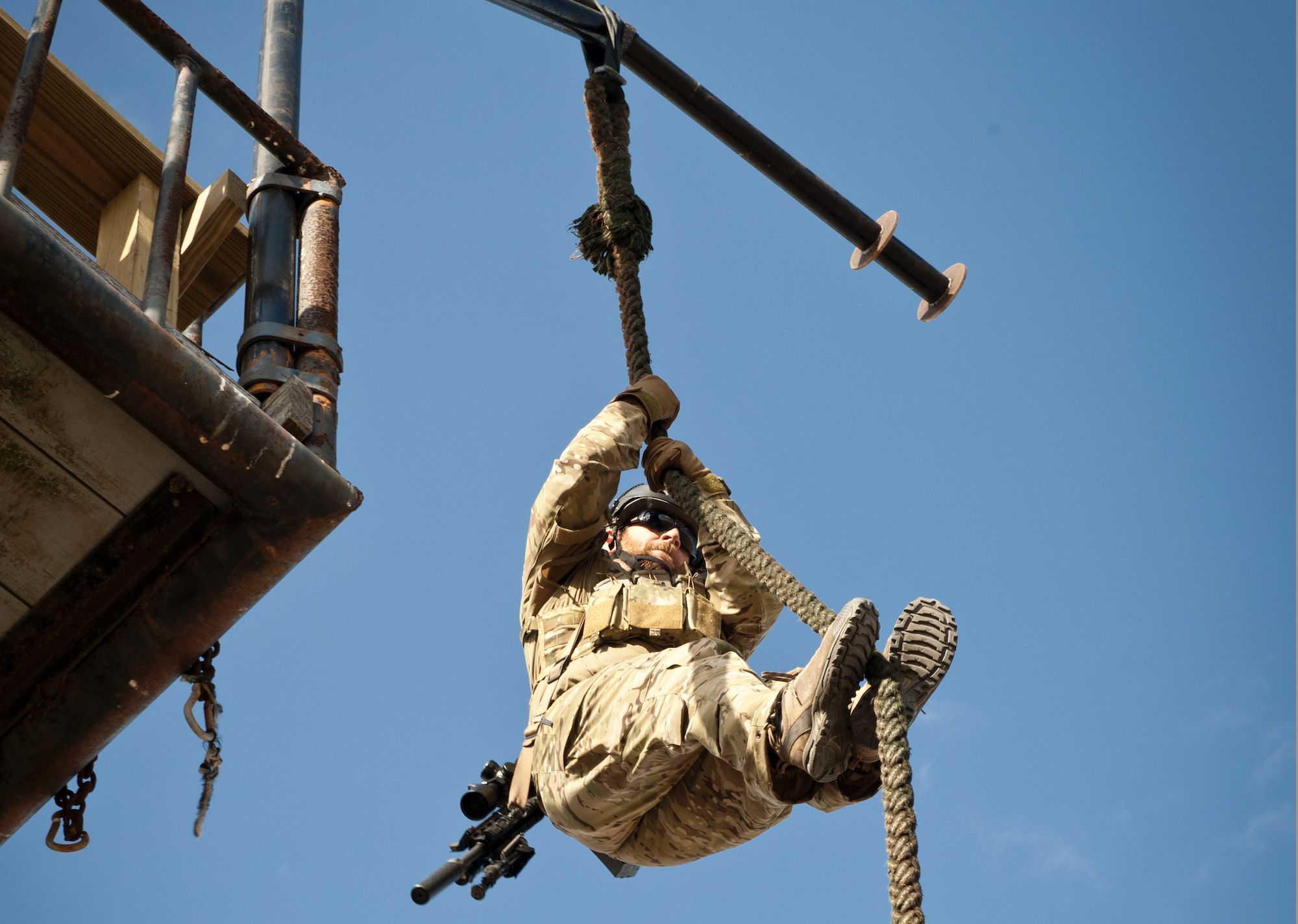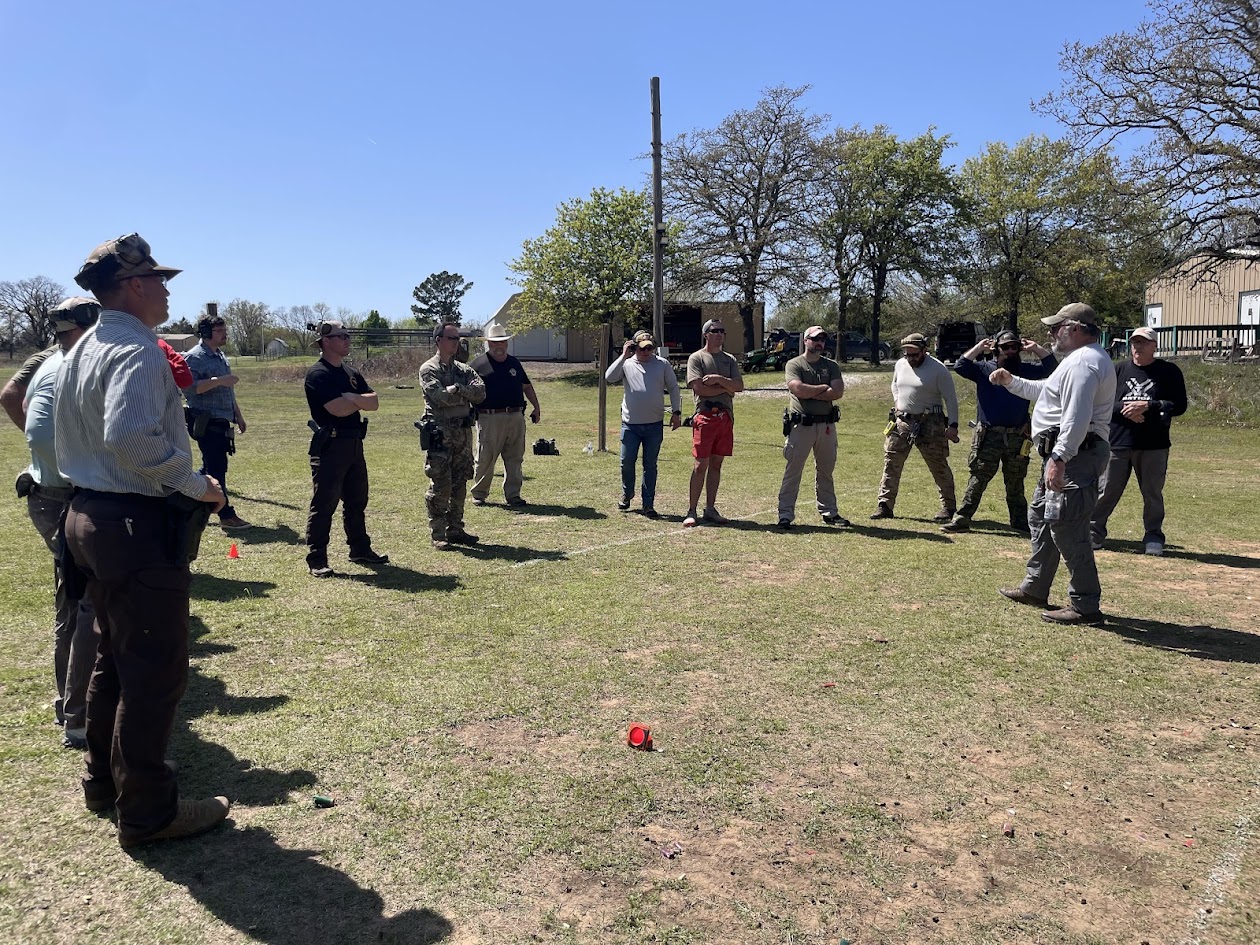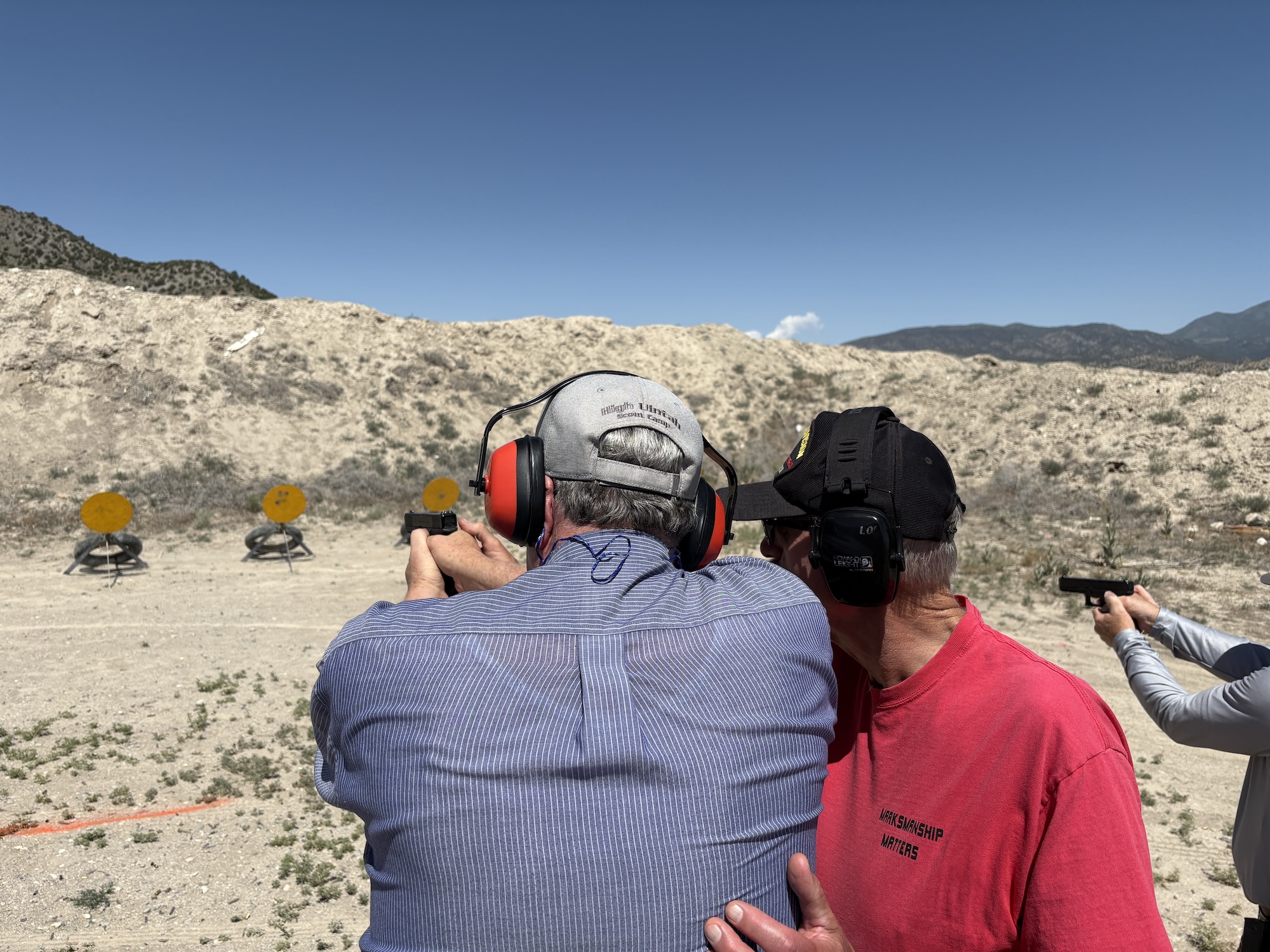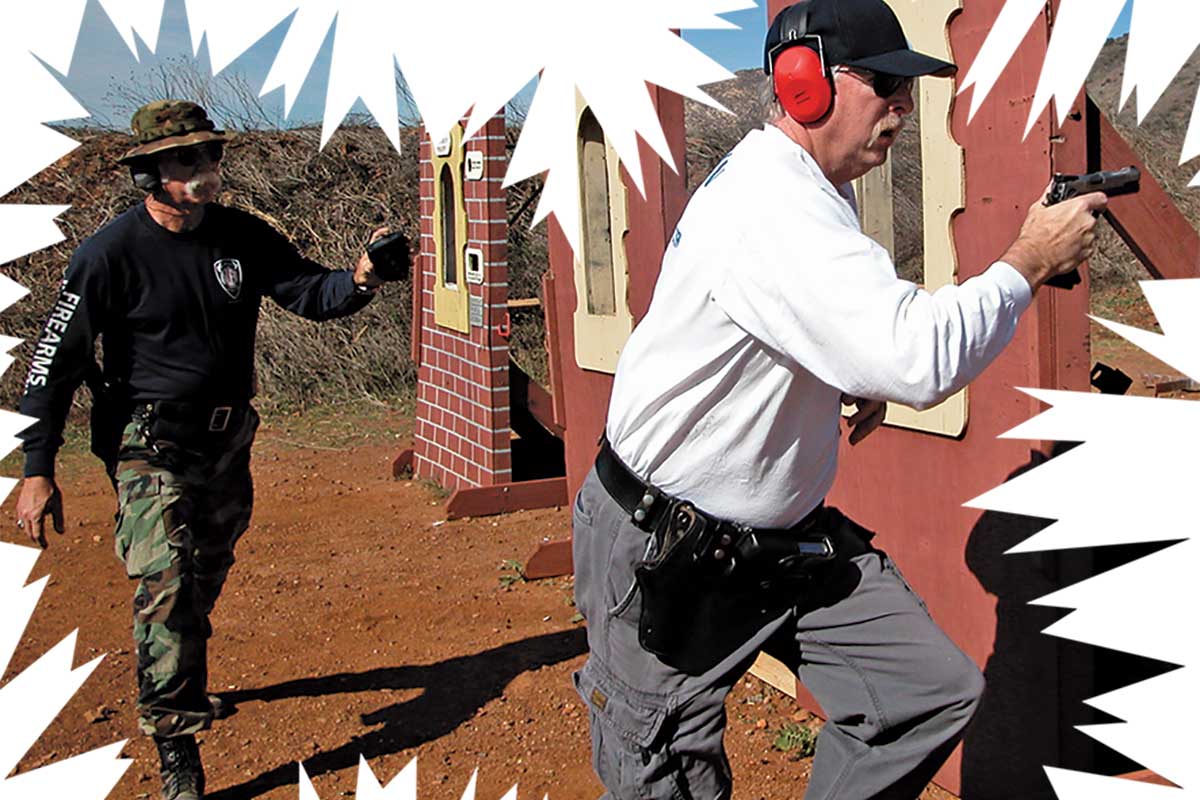
ACSO06_Rush_1-1200
Stress is stress, though people look at it and handle it very differently. For many, stress limits their ability to perform. How can a pro golfer, who never misses a 3-foot putt in practice, not sink the same shot while leading a major tournament in the final round? What happened?
What changed? The putt didn’t become more difficult, but the circumstances involved did. It became more important, and much more stressful.
I’d assume being shot at is very stressful. Having never been there, I can only guess what it’s like. I have, however, fired a gun in stressful situations many times. I’m not trying to equate a shooting tournament with a life and death encounter, but there are some similarities: You have little time to make decisions; you don’t want to miss; and you don’t want to lose. Having shot thou- sands of events against the clock I can tell you that I get nervous everytime. I don’t like it but I don’t fear it. I have learned how to per-form well while in that “world.” This exposure, combined with my training has made me a confident and aggressive competitor. Confidence in my ability to execute trained skills has come from performing in a testing environment. Practicing alone at the range is great for building skills, but it doesn’t let me know what I can do under pressure. You must separate skill building (practice) from testing (competition). A tournament is nothing more than the test. I need that “match environment” to test my powers of concentration and execution under stress.
INOCULATION
Some will point out that shooting competition is not an accurate simulation of a gunfight. They are absolutely right as no structured event can be. Only a gunfight faithfully represents a gunfight. The connection I make is stress is present in both situations. As cops, you should be very interested in learning how you’ll perform when exposed to stress and strain. More to the point, how you can become accustomed to dealing with pressure and actually use it to excel.
In a traditional match, your decision-making processes are not being tested. Your ability to shoot on demand is. Your training and preparation are under scrutiny. Most of us could afford to be faster and more accurate shots under pressure. We need to hone physical skills, develop mental focus and the concentration necessary to excel when under duress. A match is the place to develop this potential.
You can develop confidence in your ability to perform at a high level by repeated exposure to stress and trying to execute correctly during that time. That’s why I enter so many events. It’s necessary to desensitize myself to the negative effects of stress. You can’t eliminate the stress, but it will become much more manageable when you’re accustomed to its effects.
In a typical competition, you know ahead of time what’s going to happen and the decision to shoot has been made long before the actual time to shoot arrives. This makes it unrealistic when compared to a real-life situation. Some events can be run as a surprise to test problem solving, but then you must determine if the success or failure was due to mechanical skills or the cognitive ability to use those skills. Thats complicates the learning process — so let’s just start with a match where everyone knows what’s expected.
Look at each individual “stage” as something that matters. In your mind, you should want to excel every time. This should cause some nervousness. That’s okay. It just means it’s important. Focus on executing your plan for the course of fire. Leave no detail out. Know where you want to be, which tar-gets you need to shoot and the order in which you want to engage them. Also, figure out a backup plan. Now memorize your course of action. When it comes time to actually shoot the stage, focus on what you want to do and see all that is happening around you.
Make the shots as quickly as you can hitting the intended targets. How well did you exe-cute the plan? If mistakes were made, what were they and how could they have been avoided? What must you do to improve next time? Make mental notes on what to practice and go on to your next “stage” and do it all over again.
Don’t cheat yourself. You must go into a shooting competition with the right out-look and objective. If you’re at an IPSC match, and you play the role of “tactical master” and shoot slowly or use cover not required by the event, you are not taking advantage of the opportunity to test your-self against other competitors. If the stage or drill is being timed and you do any-thing unnecessary that adds time to the clock, you are not getting the point. It doesn’t matter if it’s tactically sound or realistic or practical. Practical shooting isn’t always practical! So what. Use it to learn. Use it to train. Yeah, you can go back and say, “I would have done better, but I did tactical reloads and took full use of cover.” But, if you weren’t required based on the stage procedure, you’re missing the point. You have to be able to compare equally or the results mean nothing and you won’t learn a thing.
Always try to follow up your match with a practice session and work on your problem areas.
WEAKEST LINK
For the beginning shooter the weak link is the lack of technical shooting skill, but as time goes by and your skill set improves, mental mistakes start making bigger differences. The mind becomes the weakest link. While it has the ability to process information very fast, under stress, this processing speed can slow to a crawl or stop completely. I know shooters who are very good shots but fall to pieces when exposed to the match environment. It is no longer relaxed and fun. This is fine for the casual shooter, but not for someone whose life depends on it.
THINKING VERSUS SHOOTING
Hitting targets in a match isn’t very hard. What makes it difficult is the desire to do it in a very short time frame. The biggest mistakes are due to mental processing. Over-analyzing delays the action progress. When the mind says, “Whoaaaa … slow down and see what’s happening,” the elements that allow the gun to be fired are also slowed or stopped. Then, when you catch up with what’s happening, you start rushing and fire bad shots. When this happens, it’s an indication you’re not able to shoot as quickly as you can think. Some shooters get sloppy. Some actually slow down and perform way below their mechanical ability. Try to focus the mind.
MATCH RESULTS
Your ability to survive on the street is hard to test and quantify — too many variables. Your ability to shoot however isn’t hard to test. It can and should be done regularly. What you get out of the test and how you look at the opportunity to perform is what’s important. It is just a game.
However, the lessons learned and skills developed can be applied to more serious occasions. And therein lies the value. At a competitive event, you can gain experience from repeatedly shooting under pressure.
Improving marksmanship is easy. It just takes time at the range and execution of fundamentals. However, your brain is tricky and teaching it to deal with pressure can be daunting. Pressure can make you do stupid things — things you wouldn’t normally do. It can also, if used correctly, allow you to perform well in tough situations. This heightened state of awareness can make you move quicker and act sharper than normal. Use the nervousness to your advantage. When I feel nervous in a match, I know what I’m about to do matters to me. I become highly focused and completely unaware of other distractions. This allows me to perform better than when I’m in a relaxed state of mind. I want to be nervous.
Executing well under match pressure is all a matter of conditioning. Use the energy of stress to allow yourself to perform better. Competition demands that you deal with pressure, physically and mentally. You’re programming yourself to focus. This is ultimately the point: train yourself to execute correctly when the heat is on.
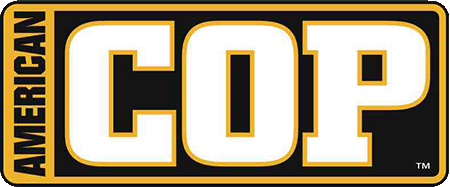

 (No Ratings Yet)
(No Ratings Yet)